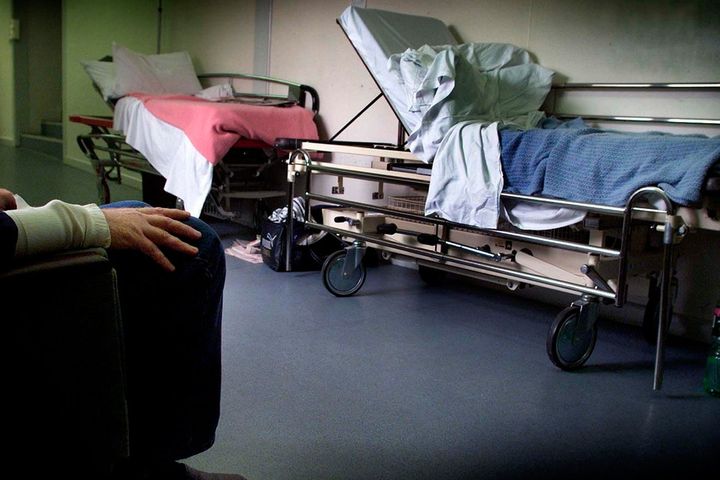Elderly patients taking up hospital beds to be moved to next available nursing home to ease winter trolley crisis

[ad_1]

They will be asked to move out of hospital to another nursing home temporarily, where a place has become vacant, even though it is further away.
The decision is part of a new drive to reduce hospital overcrowding and free up beds to alleviate the trolley crisis.
A circular from HSE chief Bernard Gloster and chief medical officer Dr Colm Henry, who is a geriatrician, to action the new policy has been sent to hospital managers across the country.
There are around 500 beds occupied at any one time by patients known as ‘delayed discharges’ who no longer have to be there but need step-down care, in many cases a place in a nursing home.
At the same time hospitals may be struggle with over 500 patients on trolleys waiting for a bed.
It will apply to patients who are approved for the Fair Deal scheme and also those who need nursing home care temporarily while a more long-term health plan is agreed.
They will still be able to apply to move to the nursing home of their choice when a place becomes vacant .
In a circular to hospitals Mr Gloster said: “There is no doubt that in some of our hospital settings, including but not exclusively, in larger hospitals on the southside of Dublin, there are long-term care beds available but there are also delayed transfers of care for patients approved through NHSS (Fair Deal) process for long-term care.
“It is regularly the case that there may be patients approved for long-term care on the south side of Dublin and the only availability is on the north side and similar happens in other regions of the country.
“At all times the HSE wants to respect patient and public choice and self-determination as would be reasonable in any care context. However, it is recognised to be the case that what is available may have to be accepted while a patient’s choice is awaited.”
He said: “While choice has a particular meaning for long-term care it is simply not sustainable for us to continue to care for people in acute hospital settings when their acute care has finished and has been approved through for long-term care, even though at times the available onward nursing home may not be the first choice of the patient or their family.”
He added: “We want to work compassionately with patients and families while equally ensuring that remaining in hospital post an acute phase of care is not any appropriate arrangement to continue or a choice to be exercised. Patient safety and appropriate access to care are critical considerations in all discharge planning and decision making.”
The decision has been welcomed by the body representing hospital emergency consultants. The Irish Association for Emergency Medicine said it will “improve bed availability at our acute hospitals and reduce the duration of time patients spend on trollies in emergency departments awaiting an inpatient bed.”
They said that “at issue is patients who have completed hospital treatment for their acute illness and are deemed ready to be discharged from the acute hospital to a transitional care or long term care bed in a nursing home.
“Often these are older adults who cannot safely be discharged directly to their own home. Problems can arise when the long-term care facility preferred by the patient or the family of the patient is not immediately available. Mr Gloster and Dr Henry emphasise that at all times the HSE wants to respect patient and public choice and self-determination, however they state, what is available may have to be accepted while a patient’s choice is awaited.
“We know that for every 82 patients who are delayed more than six hours in an emergency department to get to an inpatient bed, there is an excess death.
“It is unconscionable that a patient who needs an inpatient bed for acute treatment is unable to go to one because the bed in the acute hospital is being used for a patient who could have their care needs met elsewhere. Given the shortage of acute hospital beds in Ireland, it is simply not feasible to allow these beds be used for patients who do not need the services of an acute hospital and who could be managed safely in a nursing home or community hospital facility.”
They added: “We hope patients and their families will understand the vital importance of maintaining acute hospital beds for sick patients who need to be admitted to the hospital and tolerate what may at times be an inconvenient temporary arrangement while the nursing home or community supports of their choice is awaited.
“It goes without saying that investment in extra bed capacity in our hospitals and in the community healthcare setting is vital and every effort must be made by our Government to increase our bed base to align with OECD bed numbers.”
[ad_2]